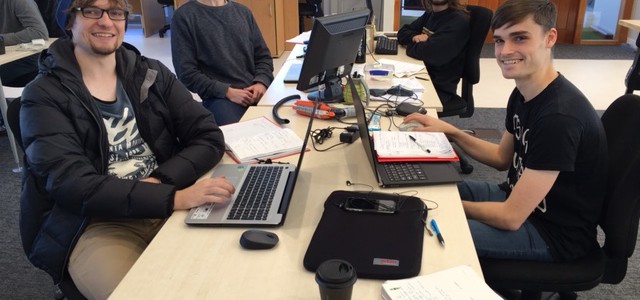Good curries, the great location and a boss who’s a “pretty loose unit” are just some of the plus points of interning at telephony company Conversant, according to the four Auckland University software engineering students who help swell staff numbers when they occupy the development driving seats on a weekly basis.
Interns Tate, Max, Jacob and Sam “bring quite a different energy to the office”, says boss Cameron Beattie, who admits that it would be more difficult to make the flexible dynamic work in a larger, more traditional organisation. He says the group, with its unique mix of attributes and personalities is largely self-managing, but appreciates that the primary focus of the final-year students needs to be their studies. They work one day a week during term time, take time off for exams and then come in full-time over the holidays.
Larger employers may well boast well-developed internship programmes, but these are often focused on fixed, short-term projects that nobody else wants to do. “These guys are doing real stuff”, says Cameron. They’re not working on training exercises or being put through their paces for the sake of it.
The shortage of good staff is an ongoing issue for many software businesses, but Cameron lays the blame for this squarely on the industry, who he says expects fully-formed software developers to magically appear out of educational institutions.
Conversant’s internship programme represents a modern, seamless way of working which is more in sync with the aspirations and expectations of those starting out in the workforce, Cameron believes. The interns are left to get on with it day-to-day, while full-time employment with the company is an attractive and realistic opportunity once they’ve done their time. In return, the company gets commitment, loyalty and tangible, successful results. A recently-launched, self-service portal for customers was largely developed by the interns, and they’ve also implemented a new CRM system.
And the secret for success? “I’m not a programmer, which helps”, says Cameron. “We complement each other. They do the code reviews and quality control amongst themselves, while I take care of the business end. I trust them that they’ll make it work before it comes to me.”
